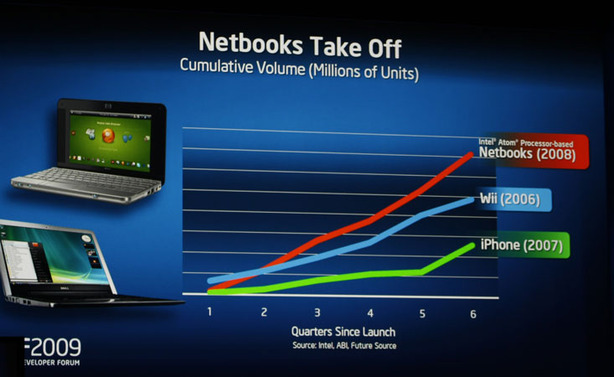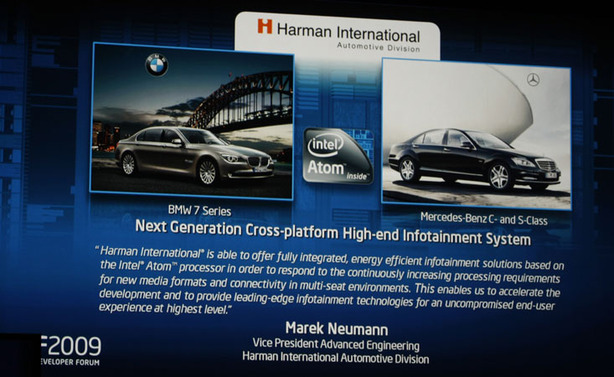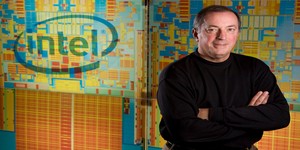SoCs are big business
In addition to the development of Intel's Core microarchitecture, Otellini was very keen to point out that Intel's second platform, Atom, is just as important - if not more important.Atom has been a massive success for Intel, thanks to the rise of netbooks, but there's more to Atom than just netbooks. Otellini was keen to focus on just netbooks for the time being though, showing a slide with netbook sales plotted next to sales of the Nintendo Wii and iPhone, which he described as the two biggest consumer electronics devices of the past couple of years.

We were fairly critical of early Mobile Internet Devices (MIDs), but the first-generation Atom products really weren't small enough and drew too much power to really enable manufacturers to make decent devices. Intel's decision to team up with TSMC for manufacturing Atom chips looks much smarter than it did now that Otellini has provided a better explanation.
In order to get into smaller footprints and smaller devices, Atom is moving into SoC (System on a Chip) territory very quickly, and the TSMC deal may just be a game-changer for many types of device, including mobile phones, media players, set top boxes and many more. The deal enables consumer electronics manufacturers to use Intel's Atom core in a custom SoC part, which would be manufactured in TSMC's fabs.

We could see a company such as Nokia commissioning TSMC to manufacture an Intel-based SoC for its next-generation smartphone, for example. Equally, we might see Nvidia create an Atom-based SoC similar to its ARM-based Tegra chip. Intel is quite happy to lose the chipset business on its Atom core if it enables it to win CPU business where it wouldn't have done so before. This is because it'll let Intel push an x86 architecture into domains that previously only ARM-based chips have been successful, opening a lucrative new market and revenue stream.
But when it comes to integration, Otellini believes Atom's biggest opportunity is in the automotive industry, despite ironically saying that the motor industry was in a dire state moments before. Intel is working with Harman International, which is already developing Atom-based in-car technology installations for BMW and Mercedes. There are wider plans for Atom-based installations to be used in every new car, and it's at that point when things get really interesting for car enthusiasts, as there'll be a consistent platform across the board.


MSI MPG Velox 100R Chassis Review
October 14 2021 | 15:04









Want to comment? Please log in.